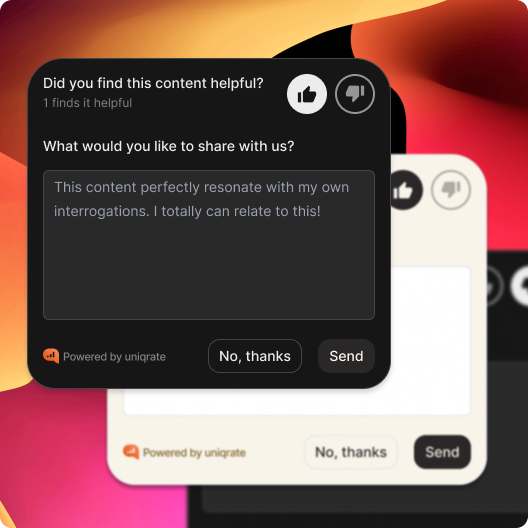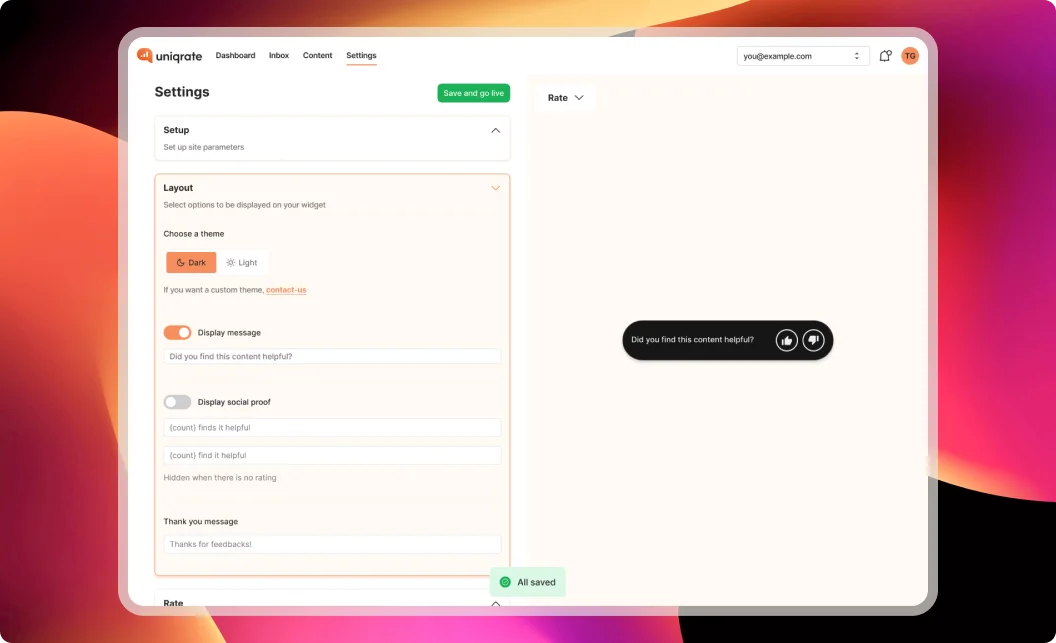In the world of B2B sales, blogs are more than just a tool for brand awareness—they’re a vital component of the buyer journey. Blogs educate prospects, build trust, and guide potential customers toward making purchasing decisions. However, a blog’s effectiveness in driving sales hinges on one key factor: visitor engagement.
When your blog keeps readers engaged, it doesn’t just improve metrics like time on page or click-through rates. It also lays the groundwork for generating leads, nurturing relationships, and ultimately, closing deals. In this article, we’ll explore actionable strategies to increase your B2B sales by boosting blog visitor engagement.
Why engagement matters for B2B sales
Engagement is the bridge between your blog and your sales funnel. High engagement leads to:
- Stronger brand authority: Engaged readers see your blog as a valuable resource, positioning your business as an industry leader.
- More qualified leads: Readers who spend time engaging with your content are more likely to convert into leads and customers.
- Improved SEO: Higher engagement signals to search engines that your content is valuable, driving more organic traffic to your blog.
Strategies to boost blog visitor engagement
Here are proven ways to increase visitor engagement and translate it into B2B sales.
1. Encourage feedback to build relationships
Reader feedback is a goldmine for understanding your audience and improving engagement. Asking for feedback shows that you value your readers’ opinions and fosters a two-way relationship. This interaction builds trust and loyalty, which are crucial for B2B decision-making.
How to collect feedback:
- Add a feedback widget to your blog, such as the Uniqrate feedback island, where readers can rate your content or share suggestions.
- Use surveys to ask readers about their pain points, challenges, or interests.
- Encourage comments on blog posts by posing open-ended questions at the end of your articles.
Pro Tip: Display social proof like "200 readers rated this article as helpful" to encourage others to engage.

2. Generate new article ideas from your audience
Engagement isn’t just about the content you already have—it’s also about creating content your readers want to see. By listening to your audience, you can uncover topics that resonate most with them, ensuring your blog stays relevant and engaging.
How to generate ideas:
- Analyze feedback and comments for recurring questions or requests.
- Use analytics tools like Uniqrate to identify content gaps based on reader behavior.
- Conduct polls or surveys asking readers, “What topic would you like us to cover next?”
New content that directly addresses your audience’s needs keeps them coming back, increasing time on site and positioning your blog as a trusted resource.
3. Improve existing articles to retain readers
Not every article will perform perfectly the first time. Analyzing how readers interact with your blog can help you identify underperforming content and optimize it for better engagement.
How to improve articles:
- Update outdated information: Ensure your posts reflect the latest trends, statistics, or industry insights.
- Enhance readability: Break up long paragraphs, add subheadings, and include visuals to make your content more digestible.
- Incorporate feedback: If readers have pointed out missing details or confusing sections, address these issues to make the article more useful.
- Add internal links: Guide readers to related articles or case studies to keep them engaged with your blog longer.
Tools like Uniqrate can highlight which articles readers love and which ones need improvement, making it easier to focus your efforts.
4. Capture leads by offering valuable resources
Engaged visitors are more likely to take the next step in your sales funnel, especially if you provide them with additional value. Offering gated content, like whitepapers or eBooks, is an effective way to capture leads while maintaining engagement.
How to use gated content effectively:
- Create highly relevant resources: Base your whitepapers on topics that your audience finds engaging, as identified through feedback or analytics.
- Optimize your call-to-action (CTA): Place prominent CTAs within your articles encouraging readers to download your whitepaper. Use action-oriented language like “Get your free guide now.”
- Simplify the form: Only ask for essential information, such as name, email, and company.
- Follow up: Use the contact information to nurture leads with targeted email campaigns that build on the topics they’ve engaged with.
By offering whitepapers, you turn casual blog visitors into potential clients who are already interested in your expertise.
Using Uniqrate to enhance blog engagement and sales
Uniqrate is a content-focused analytics and feedback tool designed to help bloggers and B2B marketers optimize their blogs for engagement and conversions. Here’s how it can help you execute the strategies outlined above:
1. Feedback collection
Uniqrate’s interactive feedback island makes it easy for readers to rate your articles or leave comments. This feedback provides actionable insights into what’s working and what needs improvement.

2. Content insights
Uniqrate highlights which articles are most engaging, helping you replicate their success and focus on the topics that drive reader interest.
3. Privacy-friendly analytics
Unlike traditional tools, Uniqrate is cookie-free and GDPR-compliant, meaning you can gather valuable data without compromising reader trust or requiring intrusive cookie banners.
4. Social proof display
Uniqrate enables you to showcase metrics like “300 people found this article helpful,” encouraging more readers to engage with your content.
Case study: Turning engagement into B2B sales
The challenge: A SaaS company struggled to convert blog visitors into qualified leads. Although their blog generated significant traffic, visitor engagement was low, with few readers moving to the next step in the sales funnel.
The solution: By integrating Uniqrate, the company:
- Collected reader feedback to identify which topics resonated most.
- Improved underperforming articles based on reader suggestions.
- Created a gated whitepaper addressing a common audience pain point, capturing over 1,000 leads in the first month.
The result: Visitor engagement increased by 35%, and leads from the blog grew by 50%, contributing directly to a 20% boost in sales.
Conclusion
Engaging your blog visitors is the key to increasing B2B sales. By collecting feedback, generating relevant content ideas, optimizing existing articles, and offering valuable resources like whitepapers, you can turn your blog into a powerful sales tool.
Uniqrate simplifies this process by providing the tools you need to gather insights, measure engagement, and optimize your content strategy. Start boosting your blog’s visitor engagement today and watch your B2B sales soar.
